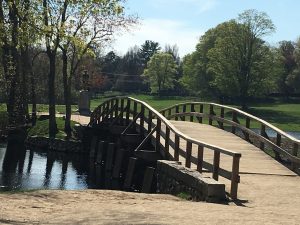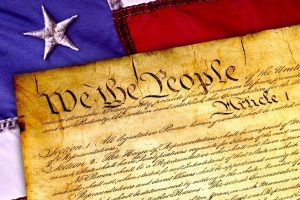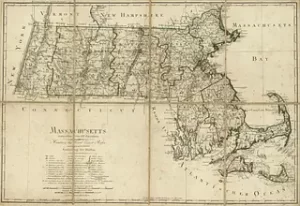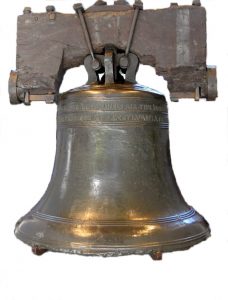As the United States gears up for our 250th anniversary in 2026, we should remember that the official start of our Revolution took place in Concord and Lexington, Massachusetts, in April 1775.  By exploring our historic roots, we can draw inspiration and lessons for how to survive the Trump 2.0 Administration.
By exploring our historic roots, we can draw inspiration and lessons for how to survive the Trump 2.0 Administration.
There are pitfalls and ironies in marking the start of a violent revolution in the context of the supposed “revolution” that millions of Trump supporters feel they are waging against his perceived enemies, the “deep state,” and the “libs” who are “illegally attacking him.” On the one hand, our 18th-century revolution successfully threw off what can reasonably be concluded was an oppressive government and crafted a new model with lofty ideals of equality and inalienable rights. On the other hand, many (most?) of us well understand that those lofty ideals only applied to a small minority of the population at the time: slavery existed in all the colonies; only propertied white males had voting rights; and Europeans had been settling on land long inhabited by indigenous peoples for centuries – to those peoples’ great detriment. The corollary to this understanding is that we still have a long way to go to create the “more perfect union” envisioned by the Founding Fathers.
 Under Trump 2.0, we are experiencing whiplash and a very disconcerting sense of déjà vu: who now is the oppressor (or the dictator wanna-be)? And who wants to dismantle the lofty ideals of the Declaration and our Constitution – both for personal retribution and to foster white supremacist, anti-DEI and anti-“woke” goals? Trump and his circle represent the 21st-century version of King George.
Under Trump 2.0, we are experiencing whiplash and a very disconcerting sense of déjà vu: who now is the oppressor (or the dictator wanna-be)? And who wants to dismantle the lofty ideals of the Declaration and our Constitution – both for personal retribution and to foster white supremacist, anti-DEI and anti-“woke” goals? Trump and his circle represent the 21st-century version of King George.
April 2025, therefore, is an apt time to take stock. Contrary to the Trump and far-right playbook, we can do many things at the same time: we can celebrate the national heroes and the lofty, worthy ideals to which we strive while also marking our shortcomings – with the goal of ensuring that our historical narrative is as complete and accurate as possible and to foster sympathy for individuals and groups that have been injured by our national failures.
Concord, Mass., is an excellent locus for this interrogation. 250th anniversary events have been planned in Concord for a number of years to welcome visitors from all over the world. The nature and focus of the events are indicative of how far we have come in trying to tell a more complete narrative of our origins.  (In the interests of space, we will focus on Concord, but Lexington is also mounting important events and exhibits.)
(In the interests of space, we will focus on Concord, but Lexington is also mounting important events and exhibits.)
- The Concord Center for the Visual Arts is mounting “Liberation Textiles: Our Social Fabric,” curated by Elizabeth Thach and Camilø Álvårez (April 3 – May 11). The show focuses on the interrelated values of the “social fabric,” individual freedoms, and the importance of community. The list of contributors reflects the rich diversity of today’s America.
- The Concord Free Public Library is sponsoring a special exhibition April 5 – June 30. The first floor of the Main Library is highlighting selections from the Town Archives and the William Munroe Special Collections that illustrate the human impact of the fight on April 19, 1775, and “the actions of soldiers, Patriots of Color, and women.”
- On Saturday afternoons between March 22 and June 30, 2025, a coalition of entities – Minuteman National Park, The Robbins House, The Concord Visitors Center, and the Massachusetts Office of Travel and Tourism – is sponsoring the free, 90-minute Patriots of Color Walking Tour. According to the Visit Concord website, “Between twenty and forty colonists who fought along the Battle Road on April 19, 1775, were of African descent or Indigenous people. Although excluded from required militia service prior to the war, these individuals of color were the first of many to take up arms between 1775 and 1783.” This is an important corrective to our usual narrative.
- ConcordPride250 will continue its mission of “affirming the lived experiences and celebrations related to the LGBTQIA+ community” during Pride Month, June 2025.
 The planning team includes Town commissions, several church communities, local museums, and the League of Women Voters of Concord-Carlisle.
The planning team includes Town commissions, several church communities, local museums, and the League of Women Voters of Concord-Carlisle. - Among the ongoing exhibits at the Concord Museum is a photograph (ca. 1866) of African American John (Jack) Garrison. According to the Museum, “Garrison escaped slavery in New Jersey in the 1790s and came to Concord, marrying Susan Robbins, one of the founders of the Concord Female Anti-Slavery Society.” Jack and Susan’s children were associated with Henry David Thoreau, Nathaniel and Sophia Hawthorne and “Ellen Garrison, a prominent Boston social activist before the Civil War and a gifted schoolteacher in the Reconstruction South.”
- Another intriguing holding at the Concord Museum is an example of a fireplace bellows. The exhibit notes that the Ebenezer Davis Bellows Factory in nearby Acton “employed numerous Black and women workers in the 1840s to make fireplace bellows.”
As we enter the next phase of Trump 2.0, let us remember (and live out) the highest ideals of what the Revolution was all about:  “liberty, equality, natural and civil rights and responsible citizenship.” Let us follow the lead of the Concord planners: celebrate the contributions of all of our citizens and thus offer a corrective to the regressive, cruel and dangerous impulses of people in power like those our ancestors threw off two and a half centuries ago.
“liberty, equality, natural and civil rights and responsible citizenship.” Let us follow the lead of the Concord planners: celebrate the contributions of all of our citizens and thus offer a corrective to the regressive, cruel and dangerous impulses of people in power like those our ancestors threw off two and a half centuries ago.
